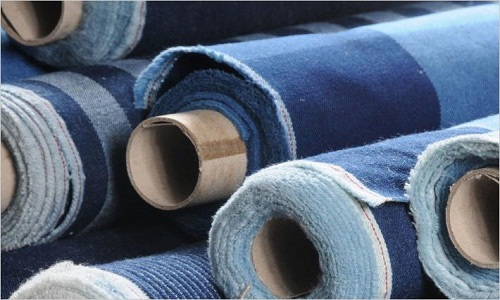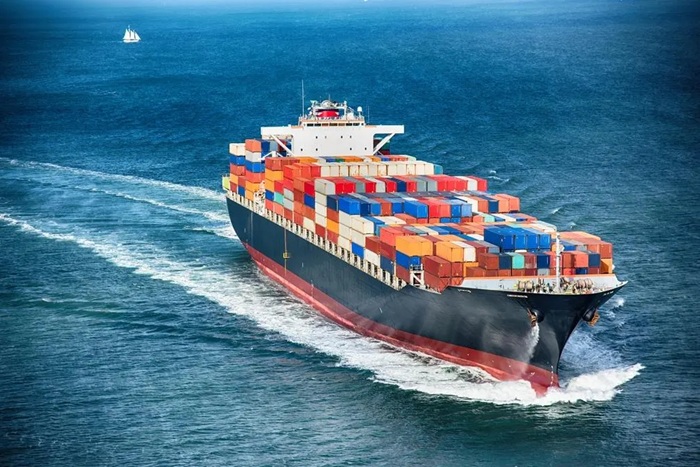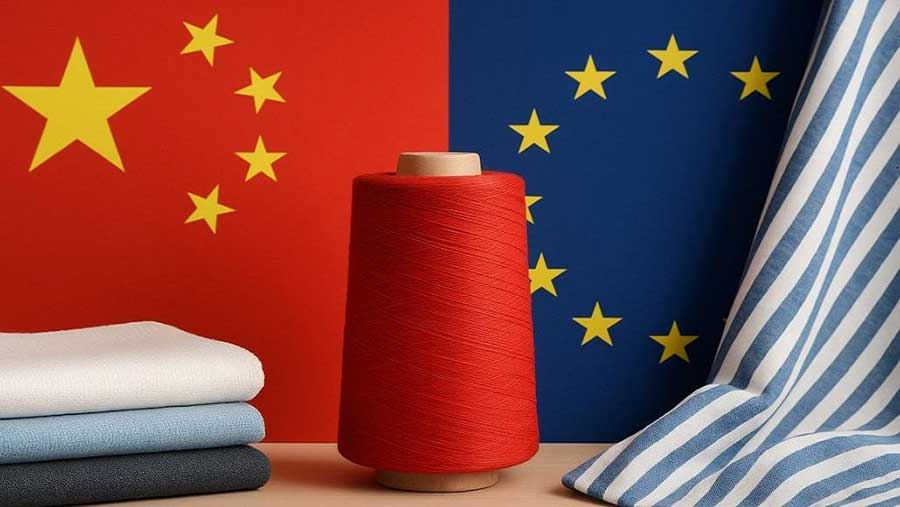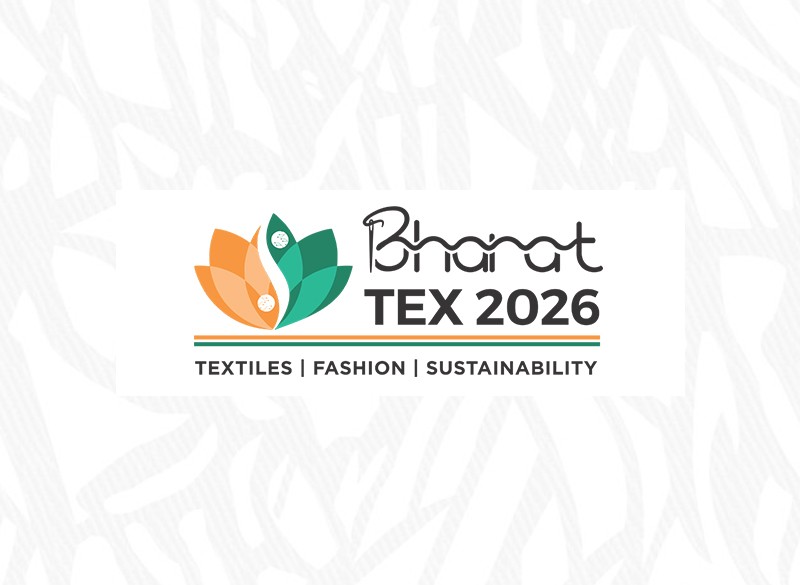FW
Chemically protective suits made of fabrics coated in self-healing, thin films can prevent farmers from exposure to pesticides, soldiers from chemical attacks and factory workers from accidental release of toxic materials.
Fashion designers use natural fibers made of proteins like wool or silk that are expensive and are not self-healing. The material to be coated is dipped in a series of liquids to create layers of material to form a self-healing, polyelectrolyte layer-by-layer coating. This coating is deposited under ambient conditions in safe solvents, such as water, at low cost using simple equipment amenable to scale-up. Polyelectrolyte coatings are made up of positively and negatively charged polymers.
Many toxic substances can be absorbed through the skin. Organophosphates, for example, which are used as herbicides and insecticides are absorbed through the skin and can be lethal. Some of these chemicals have also been used as nerve agents. A garment coated with a self-healing film containing an organophosphate hydrolase, an enzyme that breaks down the toxic material, could limit exposure.
The squid ring teeth polymer is self-healing in the presence of water, so laundering would repair micro and macro defects in the coating, making the garment rewearable and reusable.
Chinese sports brands have thrown themselves into the Brazil Olympic Games, sponsoring the event itself and supplying apparel for athletes from more than ten countries. For example, 361 Degrees is an official games sponsor and is providing official clothing to the thousands of volunteers and technicians who will ensure the event runs smoothly. It has also more than doubled the number of places its goods are sold in Brazil, to 900.
The brands that medal-winning athletes wear always become popular after the games. That’s what Peak Sport Products, which is sponsoring apparel and footwear for athletes from various countries, believes. Chinese brands may use the games to gain international recognition, but whether the returns are worth the investment is open to question. This aggressive expansion is a risky strategy. Sportswear sales don’t really rise after a brand attaches itself to these types of global events. And Brazil may not be the place to have hopes pinned on because the economy there is weak and local brands are also very competitive.
Apart from this, Chinese brands have a lot of fine tuning to do. Many don’t have defined strategies. One brand, for example, has dithered terribly over the years, with eight different taglines in ten years.
In a significant development, GOTS has announced Lori Wyman as the new Global Organic Textile Standard (GOTS) representative for North America and Elif Yarasik is the new regional representative in Turkey.
Prior to joining GOTS, Wyman was Senior Auditor with Control Union Certifications and has served as an inspector to textile programs for over ten years. She had previously worked in the membership and marketing departments of the Organic Trade Association (OTA). She is excited to draw upon past partnerships with brands, retailers, regulatory agencies, NGOs, organic certification agencies, and educational textile programs to strengthen the visibility of the GOTS program. Wyman will be based in Massachusetts.
Meanwhile, Turkey is the country with the second most GOTS certified facilities worldwide (469 in 2015) which make it a very important sourcing market. Previously, Yarasik has worked in textile both in manufacturing and sourcing industry since 1993, among others for Turkey offices of Nike, Hanes brands, Next and Puma and for big vertical garment suppliers of Turkey. She has an extensive experience on understanding manufacturing and sourcing side of business in addition to technical side. Her main expertise is the implementation and managing the ecological, environmental, social compliance requirements of textile suppliers as per brand specific requirements which includes global legislations.
For the first quarter of financial year 2017 Arvind’s revenue has increased by 17.76 per cent as compared to same period in the previous financial year. EBITDA too has risen by 16.35 per cent on a yearly basis. EBITDA margin contracted by 12 basis points to 11.5 per cent in the first quarter of financial year 2017 as compared to the same period in the previous financial year. Net profit has gone up by 87.86 per cent as compared to the same period in the previous fiscal. Arvind’s net profit margins expanded 132 basis points to 5.37 per cent on a yearly basis.
On segmental revenue front, Arvind earned 67.15 per cent from textiles, 26.05 per cent from branded apparels, 0.08 per cent from the internet and the remaining 6.72 per cent from others.
Arvind is a vertically integrated textile company. The company manufactures cotton shirtings, denim, knits and bottom weight fabrics, and jeans and shirting garments. Its portfolio includes international brands like Arrow, US Polo, Izod, Elle and Cherokee. Arvind also operates a chain of apparel value retail stores, called Mega Mart. It also operates specialty retail stores under licensing arrangements with international brands Debenhams and Next.
Branded apparels may get costlier due to the Goods and Services Tax (GST), expected by April 2017. The tax incidence on branded apparels and other finished textile products could rise at least three to four per cent, assuming textiles come under the merit list of GST.
Branded garments may be put under the luxury tax slab, which could be higher than 18 per cent. As a value chain, many inter-state transactions happen in textiles. Hence, GST is likely to bring in ease of doing business across the whole value chain.
The immediate incidence of three or four per cent, assuming a 12 per cent rate and an almost 10 per cent incidence in case of 18 per cent, will result in inflationary trends. However, a merit rate of 12 per cent for fabrics and 16 to 17 per cent for garments tends to be revenue neutral. In such a case, it may not have any inflationary pressure on garments.
The tax neutral rate in textiles comes to around eight or nine per cent. Once GST comes into play, the industry is expecting a lower rate of 12 per cent, out of the two slabs of 12 and 18 per cent. But even at a lower rate, the sector will end up paying higher duties, thereby increasing prices. Hence, from the textiles perspective, it will be inflationary.
Scientists in Sweden have created a low-cost, flexible and light-weight textile material that may be used in light-emitting clothing, signs and architecture. Their work shows that ultra-flexible light emission on large areas can be realised on very lightweight textile electrodes. Traditionally, this was hard to come by as these electrodes are typically quite rough. But the scientists have demonstrated that the light-emitting electrochemical cell's inherent fault tolerance is ideally suited for this type of transparent substrate.
The advantages of this new transparent fabric are its high flexibility, light weight, and low cost. The fabric electrode consists of a weave of silver-coated copper wires and polymer fibers that are embedded in a polymer matrix, all of which is coated with a conductive ink. The new textile emits highly uniform, bright yellow light for more than 180 hours, with the efficiency and luminescence increasing over time.
As of now, the most common transparent and flexible light-emitting device technology is the organic light-emitting diode (OLED), whose fabrication process involves expensive vacuum technology.
The light-emitting textile developed by researchers is made by spray-coating a light-emitting electrochemical cell onto a transparent fabric-based electrode, which results in a simpler and less expensive fabrication process compared to that used to make OLEDs.
The national heritage property, The Science Museum has teamed up with Fashion UK and launched a new line of branded apparels. Together, they will develop new daywear, nightwear, underwear and socks for boys and girls featuring a range of designs based on the museum’s popular themes of space, flight and robots. On the other hand, Fashion UK will be looking at incorporating technology into their products to offer a scientific interactivity to its range.
On the partnership, Laura Clowes, licensing manager of Fashion UK said they were excited by the possibilities on product innovation that the partnership the Science Museum and will bring them. The signings follows recent critical successes for The Science Museum that includes three nominations in the Brand and Lifestyle Licensing Awards including Best Licensed Heritage or Institution Brand of the Year.
The museum has also recently re-signed with two of its most successful licensees, Clementoni and Wow Stuff who are developing new toy lines based on the Science Museum brand.
An apparel textile sourcing show will be held in Canada from August 22 to 24, 2016. This is meant to boost small businesses, retailers, manufacturers and designers across Canada. Hundreds of apparel and textile manufacturers from China, India, Bangladesh, Mexico, the US, Honduras, Peru and other countries are expected to be present.
The show provides an opportunity for Canadian apparel and textile importers and retailers to access the most current importing information from industry insiders and connect with the world’s major apparel and textile manufacturers. Canadian imports of apparel and textiles from the US have risen 20 per cent from 2012. Canadian business owners and importers will have the opportunity to secure new partners among the more than 125 apparel suppliers from China represented at the event. Chinese suppliers are eager to do business with Canadian partners and work together to make the importing process smooth and efficient.
In addition to the 200 international exhibits to be displayed at the show, there will be sessions covering topics from the Trans-Pacific Partnership and other trade agreements to best practices and the changing Canadian market. A panel on ethical manufacturing of apparel and textiles will also be presented.
"After years of deliberation, the goods and services tax (GST), touted as the biggest tax reform in Indian history since independence, finally saw light. GST is expected to reduce distribution costs of retailers, improve the speed to market and boost overall consumption. And as Kumar Rajagopalan, CEO, Retailers Association of India opines the GST will reduce distribution costs and wastages as cascading effect of taxes will go."

After years of deliberation, the goods and services tax (GST), touted as the biggest tax reform in Indian history since independence, finally saw light. GST is expected to reduce distribution costs of retailers, improve the speed to market and boost overall consumption. And as Kumar Rajagopalan, CEO, Retailers Association of India opines the GST will reduce distribution costs and wastages as cascading effect of taxes will go. And speed to market would increase, as retailers can produce wherever and sell wherever to meet demand of consumers. More importantly, the availability of products will improve.
GST a great leveler

Many in the industry say retailers can centralise their storage and supply chain as GST aims to remove the complexity of multiple state and central taxes and a multitude of exemptions and ensure a seamless flow of input tax credit in the value chain. GST is expected to impact and shape-up India’s $16-billion e-commerce industry. Similar to the European Union, the politico-economic union of 28 states, a singular tax structure across the country will simplify inter-state transfer of goods, ensure merchant compliances and lead to easier tax refunds. For startups, which are already grappling with fund-raising issues, GST will take off the burden of complicated tax frameworks, which are currently different for every state. “E-Commerce companies will not have to struggle with the complex regulatory structure. Moreover, sourcing, distribution and warehousing strategies, which are currently designed by companies from the perspective of minimising the tax liability, will undergo a change,” a Delloite report said.
GST will also boost manufacturing, especially for small and medium enterprises (SMEs). Manufacturers pay 15 types of taxes, which will now be replaced by one tax. In the short term, however, there is likely to be some cost impact. SME manufacturers, currently exempt (if annual taxable turnover is up to Rs 1.5 crore) from paying excise duty, would have to pay the full taxes if GST is implemented.
Meanwhile the man-made textile segment, long neglected by policy makers, finally expects a ‘level-playing field’ vis-a-vis cotton textiles. At present, while man-made fibers attract a 12 per cent excise duty, cotton fibers attract none. This duty disparity has distorted the domestic consumption pattern in favour of the cotton fiber, contrary to the global trend. Although the actual GST rate applicable to textile and garment products will be announced in due course, senior textile industry executives say the current disparity in excise duty rates of cotton and man-made fiber will be ‘erased,’ unless the government decides to give some exemption to cotton fibers. Industry experts expect a GST rate of around 15 per cent, if the peak rate is 18 per cent, arguing that textile and garments are essential items.
According to the noted textile expert DK Nair, who is also an adviser to South Indian Textile Mills Association, man-made fiber-based products will be more competitive vis-a-vis textiles items based on cotton fiber. This will be a good policy push, in sync with the global realities. However, both cotton and man-made fiber are also subject to 4-5 per cent state VAT, which will be subsumed by the GST.
However, if the duty treatment of all cotton and man-made fibers remains the same, prices of textile items made of cotton fiber could raise a tad, Nair added. But equal tax treatment will give a push to man-made fiber production and subsequent exports.
The industry has long been complaining that the duty disparity is preventing domestic producers from scaling up operations and, consequently, hurting India’s export competitiveness in man-made textiles. This is because while man-made fibers account for around 70 per cent of the world’s total fiber consumption, they make up for less than 30 per cent of India’s demand.
Recently, the government announced radical changes to labour laws, apart from some concessions to the garments sector, aimed at boosting exports of textiles and garments by $30 billion over the next three years from $40 billion in 2015-16. Last year, the textile ministry had recommended a reduction in the excise duty for the man-made textile sector to 6 per cent from the current 12 per cent. But, such a step was never approved by the government.
GST is a comprehensive tax levied on manufacture, sale and consumption of goods and services at a national level. Under GST there will be no difference between goods and services. GST tries to eliminate indirect taxes and mitigate cascading or double taxation issues and leads to a common national market, with elimination of state boundaries.
The present cumbersome tax system puts challenges to the manufacturers, distributors and retailers. GST aims to minimise the hitches in double taxation: primarily eradicating cascading tax and smoothing the flow and structure to make it more seamless and organised. GST would also help to restructure interstate transactions. It will focus on streamlining the taxation methods at different levels across all the states in the country and between the states and central government.
J Suresh, MD & CEO-Arvind Lifestyle Brands Ltd & Arvind Retail feels, there are two impacts. One is in terms of the rate, whether the rate will go up or not. It is okay as long as it's up to 18 per cent. The current recommendation is 18-20 per cent only. Since textile is not one of the heavily taxed categories, it could be in the merit rate as well. GST is likely to benefit industries which are largely unorganised.
Implementation of GST will reduce transaction cost of doing business, also reduce food wastage and bring down prices. Hence it will not only bring relief to the consumers, but also help retail sector and building supply-chain efficiencies in India in a big way. This is thus a win-win legislative reform for all.
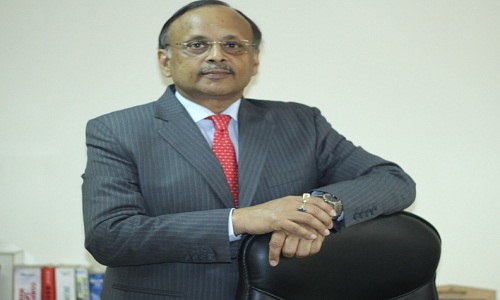
Sharad Jaipuria, the CMD of Ginni International is also the President of Denim Manufacturers Association of India, where most of India’s denim fabric manufacturers are members. Optimistic about domestic denim industry Jaipuria is also wary of too many new players coming into the fray. He speaks to Fashionatingworld about the challenges facing the Indian denim industry.
What are your business expectations from the oncoming Festive/Winter season and in the long term say next two to three years?
Denim production in India is growing at a CAGR of over 15 per cent per annum and presently India has a capacity of 1.3 billion meters of denim fabric. Also many new denim mills are coming up and expansions is taking place. This is likely to cause pressure in the domestic denim market. We expect demand for denim to grow at 12 -15 per cent for the next 2-3 years. With changing lifestyles, jeans are becoming popular in small cities and villages. Mills that are vertically integrated and focus on development and customers will continue to do well. We at Ginni Intl are concentrating on innovation, customer service and exports to stay competitive.
Give a peek into your product basket. What are the new products to be added?
Our product basket ranges on weight category between 5.0 oz.-14 oz, which is suitable for men, women and kids’ wear The products are a mix of spandex and non-spandex made of cotton , cotton-Tencel , dual core , poly viscose, yarn dyed etc. The customer today is very aspirational and therefore, we have to continuously add new qualities to our products. We have invested heavily on finishing and are offering denim finishes with peach, overdyed, brushed, coated, combination of two finishes and other chemical and mechanical finishes. Also, we are adding a printing facility soon. We are also innovating in weaving with various knits and dobby designs.
What is your capacity, current market size, in terms of volume annual growth rate?
Our present capacity is 28 million meters per annum in denim fabric, which is around 2.15 per cent of the country’s capacity of 1.3 billion meters. We make value added denim/premium denim fabrics only. In terms of distribution across channels : domestic RMG that includes brands/manufacturers/garmenting sector, manufacturer exporters make up 80 per cent; fabric exports (direct or merchant export) make up 20 per cent.
In terms of products, which kind of fabric is more in demand in domestic garment industry? What are current international trends?
The general demand is in comfort fabric with good stretch having variation in knits and dobby designs with different finishes.
India’s RMG industry has evolved a lot over the time, how do you focus on this segment?
We have a separate team to handle the domestic market, brands and exports. Presentations are planned, as their timing would be different from other channels. Our product development team develops products for exports, brands and domestic market separately for Spring/Summer and Autumn/Winter based on the feedback of our marketing team.
Do you have any major points of attention concerning this sector?
Large capacity is coming up within a short span of time which is putting pressure on denim industry. Also, exports growth is slow as large customers and retailers want packed garment and not fabric. India, unfortunately, has lost out in the race to have large scale organized garmenting like Bangladesh, Vietnam, Sri Lanka, Pakistan etc.
What kind of challenges are being faced by the domestic RMG sector now? The growth of RMG sector is complementary to denim fabric. More the growth in RMG, more the production of denim fabric as it helps in value addition.

